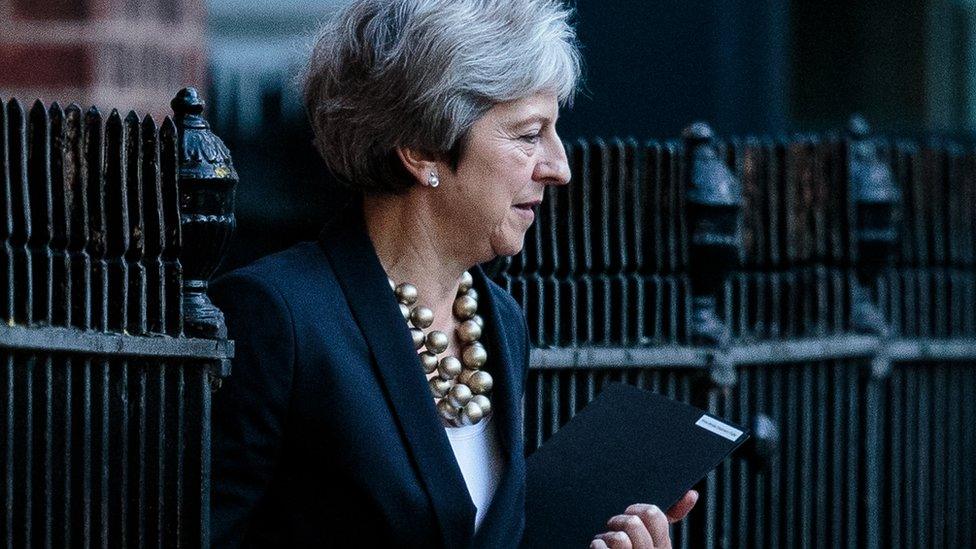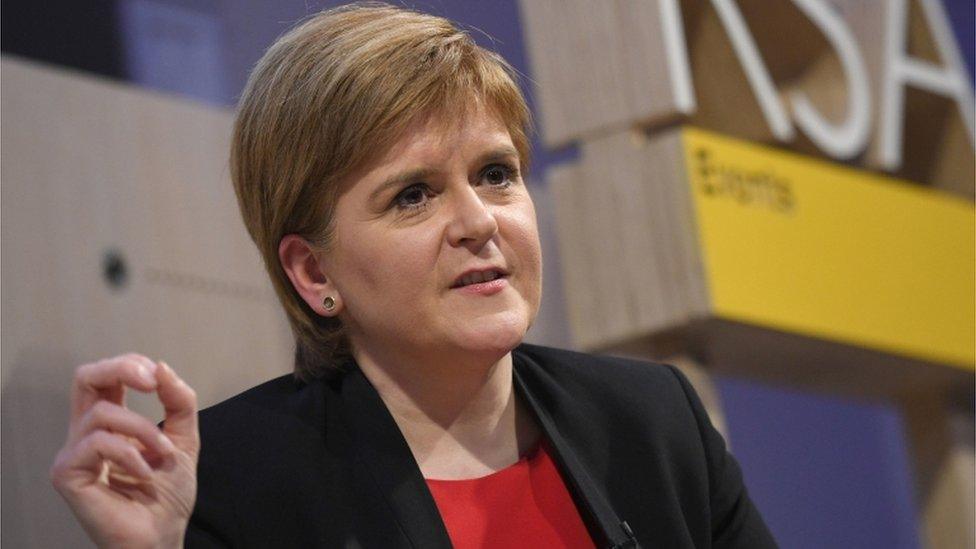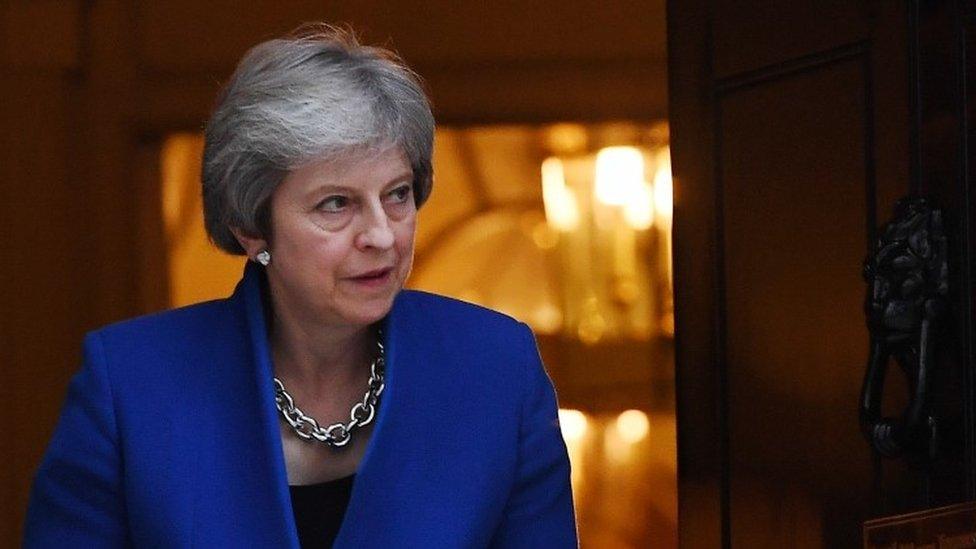Sturgeon: No deal becoming 'most likely' Brexit outcome
- Published
Nicola Sturgeon believes the UK government is "closing down the negotiating space" to achieve a Brexit deal
A no deal Brexit is becoming the "most likely outcome" of the UK's negotiations with EU leaders, First Minister Nicola Sturgeon has warned.
Talks over the UK's exit from the EU have run into a deadlock over the issue of the border in Northern Ireland.
Ms Sturgeon told Holyrood committee conveners that she was "increasingly concerned" that no deal will be struck.
And she said the situation is "the biggest failure of government policy and handling" seen in her lifetime.
The UK is currently due to leave the EU on 29 March 2019, with proposals for a transition or implementation period to follow while the future relationship between the two is thrashed out.
Talks over the withdrawal agreement which would move this process forward are said to be 95% complete, but have stalled over the issue of the border in Northern Ireland.
Ms Sturgeon told a meeting of the conveners of the Scottish parliament's committees that she was increasingly worried that the talks could fall apart without a deal being agreed -
The first minister and SNP leader said: "I am increasingly concerned, literally with every day that passes, that the prospect of no deal is becoming ever greater. And as things stand just now, and we're in a fluid situation, I think no deal might actually be the most likely outcome, and that is deeply concerning.
"Given that we're two and half years on from the vote, five months away from exit, it is staggering incompetence that a government has allowed the situation to get to this stage.
"I think Brexit is frankly shaping up to the biggest failure of government policy and handling of a situation that any of us have seen maybe in our entire lifetimes."

Prime Minister Theresa May insists her government must be ready for a no deal outcome
Ms Sturgeon repeated her argument that the "Article 50" deadline of 29 March could be extended, and that the UK government should seek to remain in the EU's single market and customs union.
The first minister also noted that Brexit is creating a "significant additional volume of work" for the parliament.
She said it was currently estimated that 800 to 1,000 regulations needed to be passed at Westminster, 140 to 160 of which will require consent notices at Holyrood.
In addition to this, roughly 50 statutory instruments will need to be passed by MSPs to facilitate withdrawal, the first of which are expected to be lodged later this year.
'Significant progress'
Prime Minister Theresa May has insisted that she is working for a deal which "protects our economy, protects jobs and ensures that we continue to have a good trading relationship with the European Union".
Speaking in the Commons on Monday, she said "significant progress" had been made in talks with European leaders.
But she warned that the government must also be ready for a no deal outcome, because otherwise she would have to "accept any deal that the European Union wants to give us, including a deal that would carve Northern Ireland out of the UK".
She said: "We are still at the closing stages of the negotiations, and nobody knows absolutely what the result will be.
"We have to ensure that although, as I think, the best outcome for the UK is a good deal, we continue to prepare for the possibility of no deal."
- Published15 October 2018

- Published24 October 2018

- Published22 October 2018
